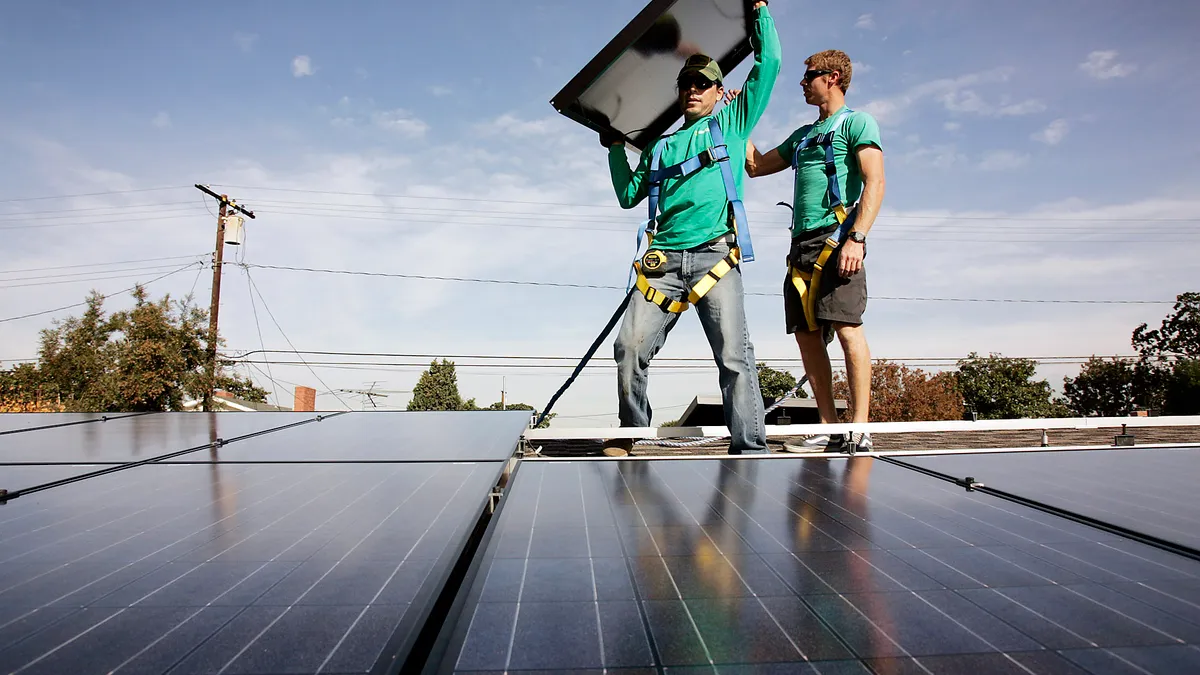Dive Brief:
- Maine Gov. Paul LePage has vetoed LD 1504, a measure to roll back state regulators' decision earlier this year to phase down net metering in the state and called for a cost-benefit analysis of the policy.
- It is the second year that LePage has vetoed a bill aimed at boosting the state's rooftop solar resources.
- According to a report in the Press Herald, LePage wrote in his veto letter that net metering subsidizes the cost of solar panels "at the expense of the elderly and poor who can least afford it.”
Dive Insight:
For the second consecutive legislative session, LePage has vetoed a measure aimed at boosting Maine's rooftop solar resources while attempting to strike middle ground between utilities and solar interests over compensation for excess energy. Solar advocates say the governor has a "crusade" against solar energy, while the state's chief executive maintains he is protecting ratepayers from subsidizing individuals' solar panels.
In his veto letter, LePage wrote that net metering “subsidizes the cost of solar panels at the expense of the elderly and poor who can least afford it. We need to move away from this unsustainable practice.”
The news outlet noted the bill passed both legislative chambers with enough margins to potentially override LePage's veto. But LePage has managed to veto bills that have passed unanimously before by snagging enough Republican votes at the last minute to prevent an override, according to the Portland Press Herald.
Last year's bill was a more comprehensive overhaul of solar policies. It would have required regulated utilities to purchase and aggregate solar generation from private solar owners and utility-scale developers, and then bid it back into New England's wholesale power market. The scheme would have been one of the first wholesale aggregations of small-scale solar.
LD 1504 was more modest in its scope, and would have rolled back a decision by the Public Utilities Commission to grandfather an existing customer's rate for 15 years but slowly reduce new customer rates each year. According to The Press Herald, in its final form the legislation reduced net metering credits to 90% for customers applying through the end of 2018, and then to 80%.
Correction: A previous version of this post incorrectly said the bill aimed to boost Maine's renewable energy resources; it intended to grow the state's rooftop solar resources.















